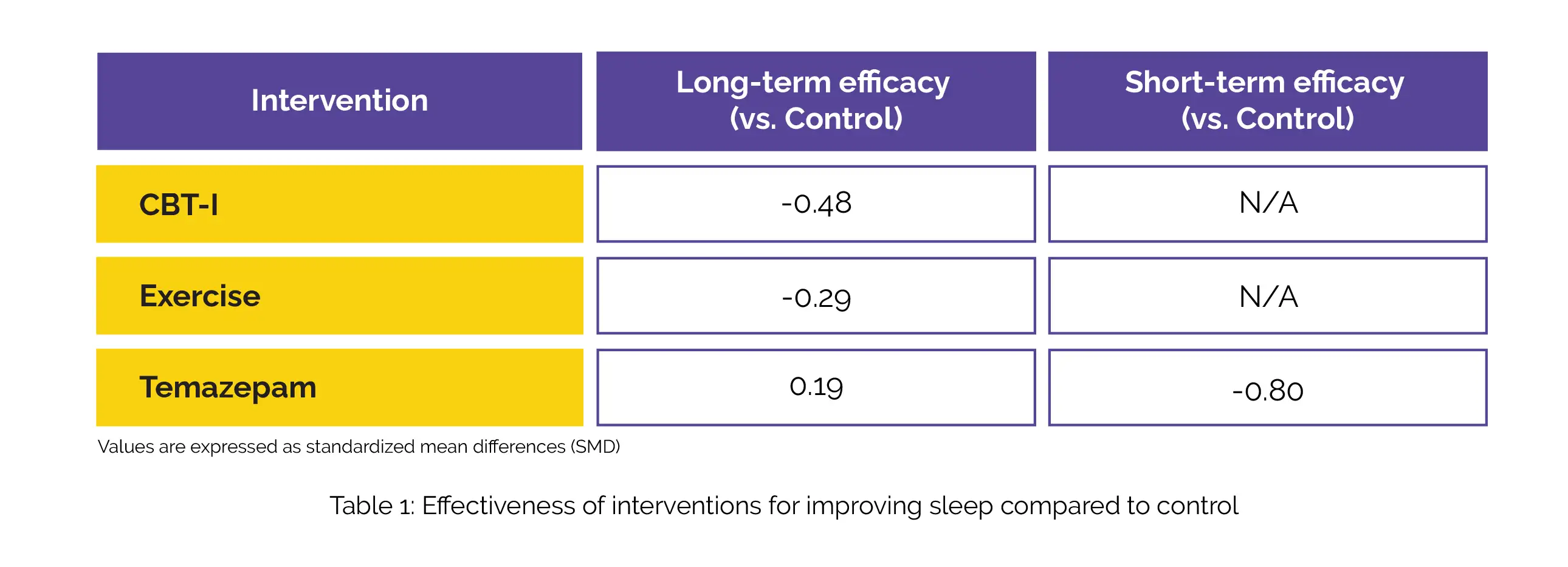Categories
Change Password!
Reset Password!


A systematic review and network meta-analysis of randomized controlled trials were conducted to assess the long-term efficacy of pharmacotherapy, cognitive-behavioral therapy for insomnia (CBT-I), and exercise in enhancing sleep quality among chronic insomnia individuals.
Both CBT-I and exercise are efficacious for the long-term management of chronic insomnia in adults, whereas Temazepam is more suitable for the short-term management of insomnia.
A systematic review and network meta-analysis of randomized controlled trials were conducted to assess the long-term efficacy of pharmacotherapy, cognitive-behavioral therapy for insomnia (CBT-I), and exercise in enhancing sleep quality among chronic insomnia individuals.
For relevant literature search, databases such as SPORTDiscus, Embase, PsycINFO, and MEDLINE were explored. The trials investigating the enduring effects of these 3 interventions on sleep improvement were considered. Eligibility required a post-intervention follow-up period of at least six months. The major endpoint of interest was the long-term efficacy of these interventions in enhancing sleep, with treatment efficacy as a secondary endpoint. Utilizing a frequentist approach, a random-effects network meta-analysis was conducted.
The study encompassed thirteen trials. Following an average follow-up period of 10.3 months post-intervention, both CBT-I and exercise exhibited greater long-term efficacy in improving sleep in comparison with the control group. The sole pharmacotherapy incorporated, Temazepam, demonstrated superior treatment efficacy but did not show enhanced long-term efficacy in comparison with the control (Table 1).

Both physical activity and CBT-I exhibited long-term effectiveness in improving sleep among adults dealing with chronic insomnia, as seen in follow-up assessments spanning six months or more. Conversely, Temazepam did not show a superior long-term efficacy when compared to the control group.
Healthcare
Effectiveness of Exercise, Cognitive Behavioral Therapy, and Pharmacotherapy on Improving Sleep in Adults with Chronic Insomnia: A Systematic Review and Network Meta-Analysis of Randomized Controlled Trials
Danny J. Yu et al.
Comments (0)